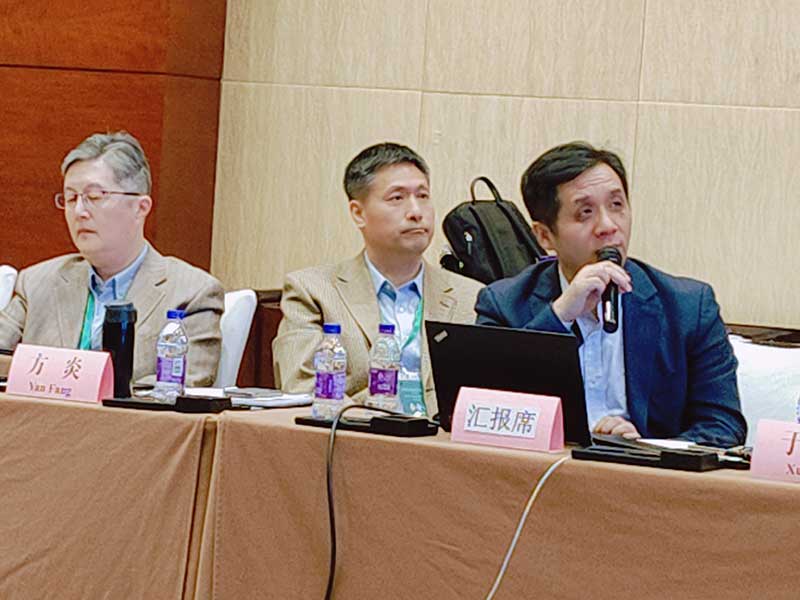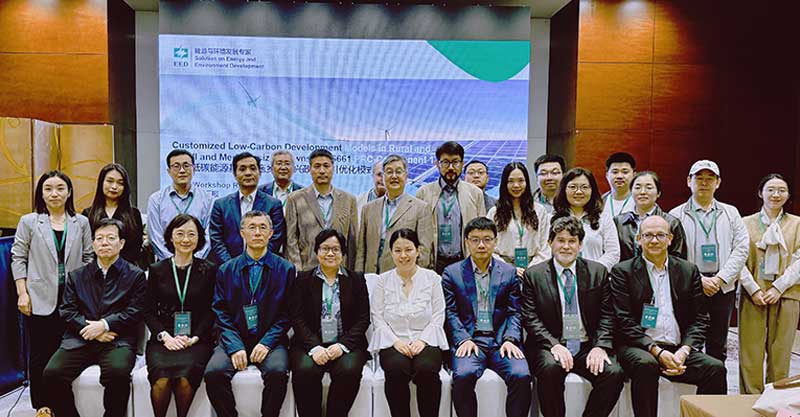The Final Workshop of “ADB Technical Assistance (TA): Customized Low-Carbon Development Models in Rural and Small and Medium-Sized Towns-Research on Optimal Models with Policy and Guidelines for Rural Vitalization via Low-Carbon Energy Infrastructure in Rural Areas” was held in Beijing.
source:本站 Number of views:536 time
Recently, the ADB TA project undertaken by EED: Customized Low-Carbon Development Models in Rural and Small and Medium-Sized Towns-Research on Optimal Models with Policy and Guidelines for Rural Vitalization via Low-Carbon Energy Infrastructure in Rural Areas (TA6661) held its final workshop successfully in Beijing. Over 30 experts and scholars from ADB, National Energy Administration (NEA), Institute of Agricultural Environment and Sustainable Development of the Chinese Academy of Agricultural Sciences, Agricultural Ecology and Resource Protection Station of the Ministry of Agriculture and Rural Affairs, Energy Research Institute of the National Development and Reform Commission, Tsinghua University, State Grid Energy Research Institute, China Electric Power Research Institute, Beijing Promotion Association for Ecological Design and Green Manufacturing, Tianjin University, and other institutions attended the workshop.

During the workshop, Dr. Xin Liu, Director of EED, introduced the project background, research methods, research tasks, and main research findings, including diversity analysis of rural China, selection of pilot projects, and selection of low-carbon energy solutions for rural China and the best model development recommendations based on different regional conditions.
The leaders from NEA and external experts provided guidance on the report. The leader of the Asia-Africa Department of the NEA affirmed the research results of the project, mentioning that low-carbon energy is an important cornerstone for achieving rural revitalization. She hoped that the project research findings could be used to promote low-carbon and modern energy supply in rural areas nationwide through demonstration and promotion. Experts believe that the tasks in the project have been well carried out, and the research results have provided guidance for the development of low-carbon energy infrastructure in rural areas to help revitalize the countryside. Moreover, the experts hope that ADB can combine China's latest policies and development trends to make good arrangements for the next steps, and provide support for low-carbon development of rural China.

The ADB project manager gave a concluding speech, in which he first acknowledged the work done by EED. He suggested that the project team should further refine the project outcomes based on the suggestions and feedback from the leaders of NEA, experts and scholars at the workshop. He emphasized the importance of improving the project research report and the perfection of knowledge products. In addition, he expressed that as a regional intergovernmental financial development institution committed to promoting the economic and social development of developing member countries in the Asia-Pacific region, the results of this project will also provide reference and lessons for other countries with large populations, high energy consumption, and significant carbon emissions.
As China's rural social and economic development continues to progress and its industrial structure undergoes optimization and adjustment, along with the continuous evolution of policies and technological upgrades, the development of low-carbon energy in rural China has gradually evolved from primarily addressing the energy shortage in rural areas to a stage aimed at promoting income growth for farmers. It is now entering a transformation and upgrading phase that is fully synchronized with the establishment of a modern energy system at the national level. The project aims to provide policies and guidelines for affordable low-carbon energy supply in rural areas, while reducing barriers for private sector to enter the market, and contributing to the achievement of the national goals of carbon peak and carbon neutrality. As a comprehensive institution committed to promoting sustainable development worldwide, EED has always focused on research in domestic and international energy and environmental policies, and planning for carbon peak and carbon neutrality goals. It will continue to delve deeply into the field of low-carbon energy in rural China, contributing its strength to the construction of beautiful villages and the implementation of rural revitalization.
 English
English Chinese
Chinese